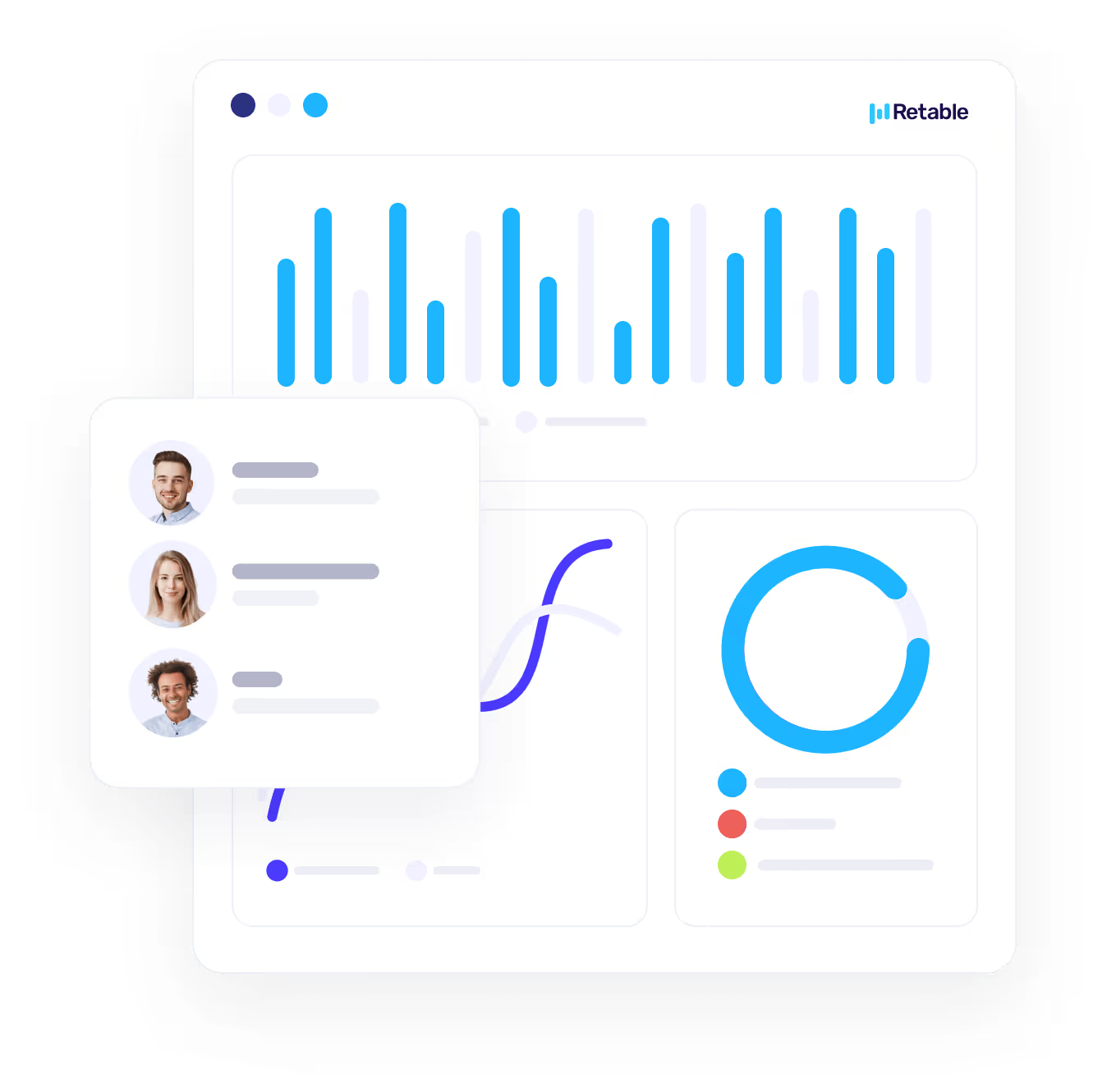Budibase
No-code app builder
Budibase & Retable integration ensures a reliable and efficient data management system, empowering users to leverage the potential of the no-code revolution.


.svg)
Budibase is a modern, open-source low-code platform for building modern internal applications in minutes. It stands out as a robust no-code platform, enabling users to create dynamic applications without traditional coding skills.
Budibase provides a versatile solution for streamlining the application development process. What sets Budibase apart is its seamless integration with Retable as a data source, allowing users to easily tap into a user-friendly data repository and enhance the functionality of their applications.
This collaboration ensures a reliable and efficient data management system, empowering users to leverage the potential of the no-code revolution and experience a more intuitive and efficient development journey.

Use Retable as a data source or a 2-way workflow
Budibase users can utilize Retable's public APIs by selecting HTTP Request as their data source. This integration enables seamless access to all public APIs Retable provides within Budibase applications.
Using HTTP requests, users can effortlessly make requests and retrieve data from Retable's APIs, facilitating the creation of dynamic and data-driven applications without usage constraints.

Adding authentication
First, we need to create API keys on the Retable end so we can connect Budibase with Retable, using Retable APIs. To do this, follow the steps below:
- From the "Account overview" section, go to API and create an API key.
- Ensure that the API status is "enabled".
- Copy the API key.
This serves as the authentication method for accessing the Retable account and its associated data
Import Retable API
The Retable API can be used through two methods. The first approach involves using the "Import" feature. Simply click on "Import," choose the Retable Open API 3.0 files, and the import process will be seamlessly completed. These files are now accessible in the Budibase API Files section.

Add Budibase parameter to the API
Once the API file has been imported, the majority of the setup is complete. Simply append the "budibase" to "platform" within the specified parameters under the Bindings section. This addition ensures that all the required APIs are included. Proceed to the "Params" and "Body" sections, and populate the data part accordingly.

If the "budibase" parameter is not included, the response will precisely mirror the examples provided in the Retable API guide. In this case, individual object responses will be encapsulated within an array, and the "created_by" and "updated_by" sections will be modified to display email information instead of an object. Hence, adding the platform key and budibase value shouldn't be skipped.
Create query manually (optional)
For manual inclusion of requests and the addition of external APIs without utilizing files, click the "Create New Query" button. Proceed to fill in the essential components as needed. This allows for the direct creation and customization of queries without reliance on pre-existing files.

Now that this section is complete, you are ready to build your own apps with Budibase, using Retable as a backend.
Head over to the great Budibase documentation filled with lots of information to start your next app project.
mORE
Retable Integration

Boost Space
Centralize data and automate business processes with Boost Space and Retable

Firmao
Manage your CRM seamlessly with Firmao and Retable.

Airtable
Easily import your Airtable bases into Retable without integrating with a third-party tool!
Create your smart data management solution
Plan, track, and analyse with your ease. Transform your data with an all-in-one platform, collaborate with your teammates.
Try for free!
.avif)